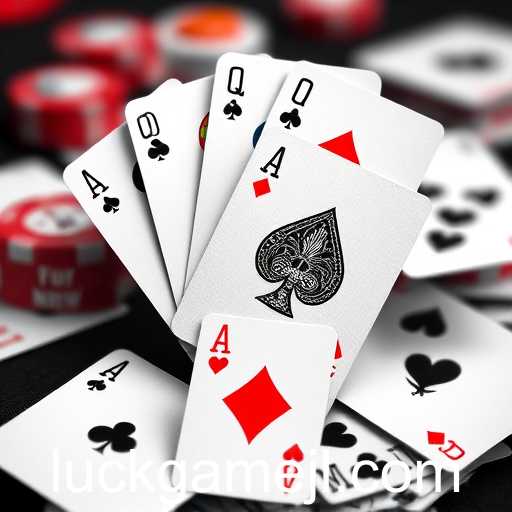Exploring the captivating world of card games, where strategy, skill, and a sprinkle of luck create endless excitement and challenge for players of all levels.
Card games have been a beloved pastime for centuries, captivating players with their blend of strategy, skill, and a touch of luck. From the hushed intensity of poker games to the lighthearted fun of Uno, card games offer something for everyone, whether you're a seasoned strategist or a casual player looking for entertainment. This universal appeal has allowed card games to thrive across cultures and generations, being a staple in both social settings and competitive arenas.
In exploring the category of card games, keyword 'luckgame' often surfaces when discussing games where luck plays a significant role alongside strategy and skill. Classic games like Poker and Blackjack are quintessential examples where an element of luck can dramatically influence outcomes, despite a player's skill or experience. These games often require players to not only master the rules and develop a strategic edge but also adapt to the unpredictability that luck introduces.
Luck in card games doesn't diminish the role of strategy. On the contrary, it amplifies it by presenting players with dynamic challenges that require quick thinking and adaptability. Take Poker, for example, where luck decides the cards dealt, but a player's skill determines how they maneuver through the game: bluffing, reading opponents, and making calculated bets. Similarly, in Bridge, while the dealt hand has an element of chance, the bidding and play require immense skill and synergy between partners.
The online gaming revolution has only expanded the allure of card games. Platforms now offer endless variations, from digital versions of traditional favorites to innovative new games that stretch the imagination. With a single click, players can join a global community, competing against or collaborating with others around the world. Digital card games often introduce new mechanics and themes, evolving traditional formats and engaging a new generation of players.
In conclusion, card games represent a fascinating intersection of luck and skill. They challenge the mind, foster social interaction, and provide endless opportunities for enjoyment, whether played casually with family or competitively in tournaments. As this category continues to expand and evolve, the magic of card games—an ever-engaging 'luckgame'—promises to entertain and challenge all who dare to shuffle the deck and deal a hand.




